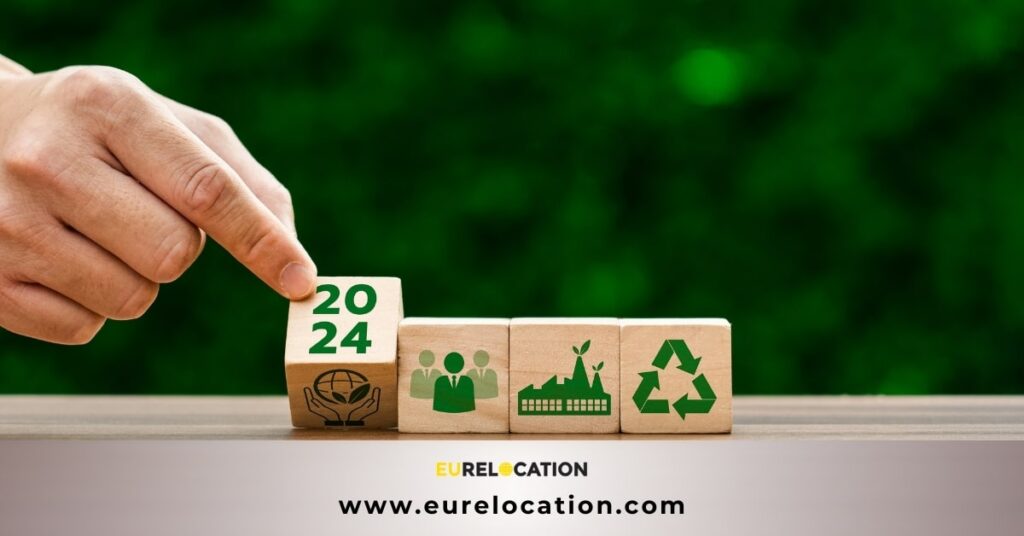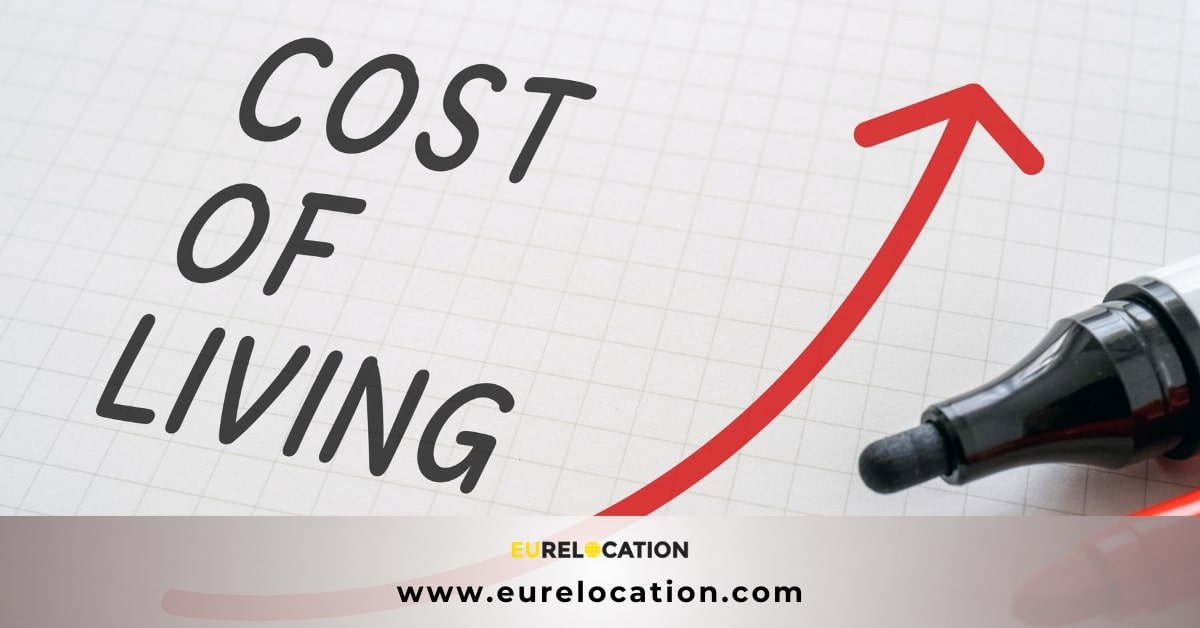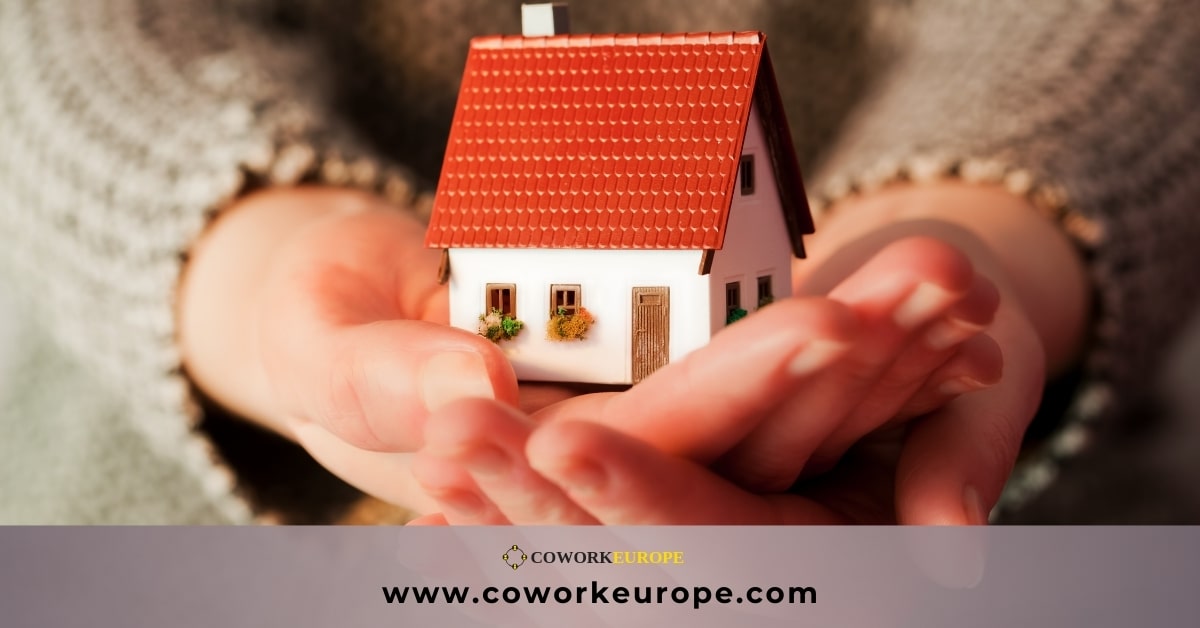Living sustainably is becoming a popular choice for many people. If you’re thinking about moving to Europe, you’re in for a chance to live a greener, more eco-friendly life. Europe is known for its strong commitment to sustainability, and many cities offer great opportunities for green living. In this article, we’ll guide you on how to embrace sustainable living in Europe, from choosing eco-friendly cities to adopting green habits.
Introduction to Sustainable Living in Europe
Sustainable living means making choices that help protect the environment for future generations. In Europe, many people have embraced this lifestyle, making it easier to live in a way that’s kind to the planet.
Why Choose Europe for Sustainable Living?
Europe is well-known for its focus on environmental issues. Many European countries have strong policies and practices to support a green lifestyle. The continent is home to cities with excellent green spaces, renewable energy, and sustainable living practices.
Top Cities for Eco-Friendly Sustainable Living in Europe
Copenhagen, Denmark
Copenhagen aims to be the world’s first carbon-neutral city by 2025. The city is bike-friendly and committed to green goals.
Amsterdam, Netherlands
Amsterdam is known for its canals and bike culture. The city is dedicated to clean energy and green spaces.
Berlin, Germany
Berlin leads in green technology and recycling. It’s a city with strong sustainable urban planning.
Zurich, Switzerland
Zurich is clean and efficient, with great public transport and green living efforts.
Transportation Options for a Sustainable Living in Europe
Transportation is key to a sustainable lifestyle. Here are some eco-friendly options:
Biking
Many European cities have bike lanes and bike-sharing programs. Cycling is both eco-friendly and healthy.
Public Transit
Europe has excellent public transport systems, including trains, buses, and trams that often use renewable energy.
Electric Vehicles
Electric cars are becoming more common. Europe is expanding its electric vehicle charging infrastructure.
Green Housing and Architecture
Choosing a green home can make a big difference:
Eco-Friendly Materials
Look for homes made from sustainable materials like bamboo or recycled steel.
Energy-Efficient Design
Homes with good insulation, energy-saving windows, and solar panels help reduce energy use.
Green Certifications
Homes with certifications like LEED or BREEAM meet high environmental standards.
Reducing Your Carbon Footprint for a Sustainable Living in Europe
Every action impacts the environment. To lower your carbon footprint:
Energy Conservation
Turn off lights and appliances when not in use and invest in energy-efficient appliances.
Water Usage
Save water by taking shorter showers and fixing leaks.
Sustainable Travel
Opt for train travel over flying when possible.
Local and Organic Food Choices for a Sustainable Living in Europe
Eating locally and organically supports sustainability:
Farmers’ Markets
Buy fresh, local produce at farmers’ markets to reduce the carbon footprint of your food.
Seasonal Eating
Choose seasonal foods to avoid energy-intensive growing methods.
Reducing Meat Consumption
Eating less meat is better for the environment compared to a meat-heavy diet.
Waste Management and Recycling
Effective waste management is crucial:
Recycling
Follow local recycling rules to dispose of waste properly.
Composting
Composting organic waste reduces landfill use and enriches soil.
Reducing Single-Use Plastics
Use reusable bags, bottles, and containers to cut down on single-use plastics.
Renewable Energy Sources for Sustainable Living in Europe
Renewable energy is essential for sustainability:
Solar Power
Solar panels are common in Europe and help reduce electricity costs.
Wind Energy
Wind turbines generate a lot of electricity, especially in countries like Denmark and Germany.
Hydropower
Many European countries use rivers and lakes for clean energy.
Cultural Practices and Community Involvement for Sustainable Living in Europe
Being part of a green community is important:
Community Initiatives
Join local sustainability programs and community projects.
Events for Sustainable Living in Europe
Attend events that promote green practices to learn more and meet like-minded people.
Volunteering
Volunteer with environmental groups to support local green efforts.
Health Benefits of Sustainable Living in Europe
Sustainable living benefits both you and the environment:
Better Air Quality
Clean energy and reduced pollution lead to healthier air.
Healthier Diet
Fresh, organic food contributes to better health.
Physical Activity
Activities like biking or walking support both fitness and sustainability.
Financial Aspects of Sustainable Living in Europe
Going green can also save you money:
Lower Utility Bills
Energy-efficient homes and renewable energy can reduce your utility costs.
Incentives and Subsidies
Many European countries offer financial incentives for green technologies.
Long-Term Savings
Investing in sustainable practices often results in long-term savings.
Challenges of Relocating for Sustainable Living in Europe
Moving to a greener lifestyle can come with challenges:
Cost of Living
Some cities known for sustainability may have a higher cost of living.
Adjusting to New Norms
Adapting to different environmental practices may take time.
Language Barriers
Moving to a country where you don’t speak the language might be challenging, so learning the local language or using translation tools can help.
How to Start Your Journey to a a Sustainable living in Europe
Here’s how to start living sustainably in Europe:
Research Your Destination
Find cities and regions that fit your sustainability goals. Look into local green practices and cost of living.
Plan Your Move
Organize your relocation, including finding a green home and learning about local sustainability practices.
Embrace the Lifestyle of Sustainable living in Europe
After moving, get involved in the community and adopt sustainable habits to fully enjoy your green lifestyle.
Embracing Sustainable Living in Europe
Relocating to Europe for a sustainable lifestyle can help you reduce your environmental impact while enjoying a high quality of life. With its many eco-friendly cities and strong green policies, Europe is a great place to start or continue your journey towards a greener way of living. Embrace the green practices, connect with the community, and benefit from living in harmony with the environment.
Sustainable Living in Europe FAQs
What are some of the best cities for a sustainable living in Europe?
Cities like Copenhagen, Amsterdam, Berlin, and Zurich are well-known for their commitment to sustainability.
How can I reduce my carbon footprint while living in Europe?
Use energy-efficient appliances, bike or use public transit, and choose sustainable food options.
Are there financial benefits to living sustainably in Europe?
Yes, you can save on utility bills, benefit from financial incentives for green technologies, and see long-term savings.
What are some common challenges of relocating for sustainable living in Europe?
Challenges include a higher cost of living, adjusting to new environmental practices, and potential language barriers.
How can I get involved in sustainability initiatives in my new European city?
Join local sustainability programs, attend green events, and volunteer with environmental organizations.









